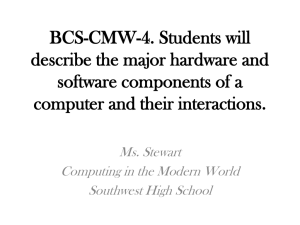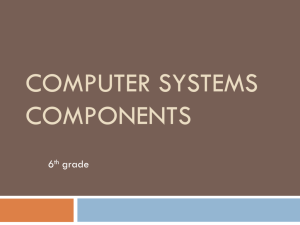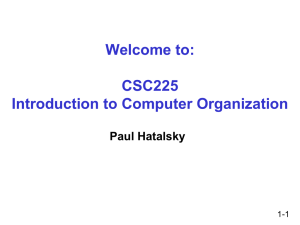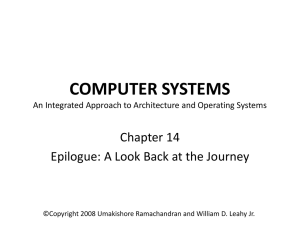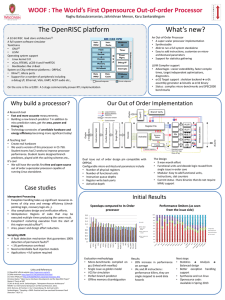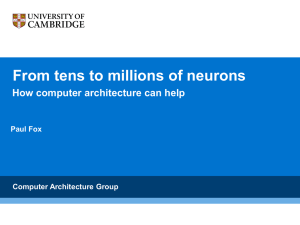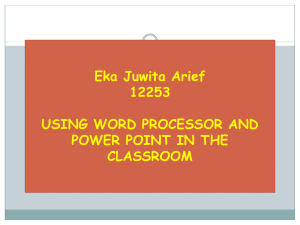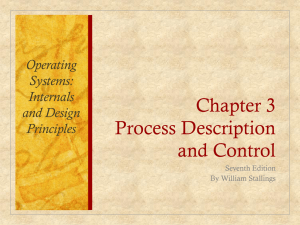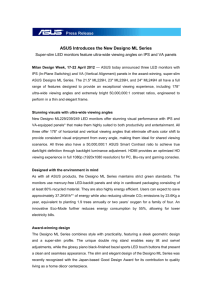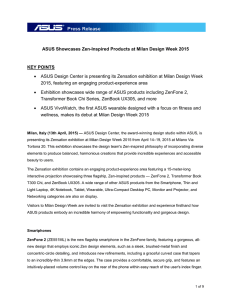Computer Systems
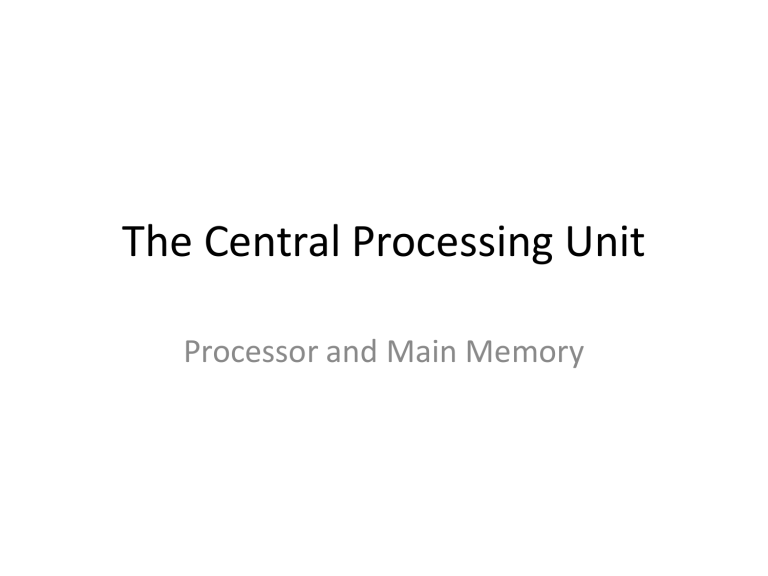
The Central Processing Unit
Processor and Main Memory
Learning Intentions
• We are learning to:
• State the function of the processor
• Describe the differences between RAM and
ROM
• Make comparisons between computer systems using processor speed and main memory size.
• State the function of graphics and sound cards.
INPUT
The Computer System
MAIN MEMORY
Processor
BACKING
STORAGE
OUTPUT
Processor and Main Memory
• Processor - Deals with all the movement of data and the calculations that need to be carried out.
• Main Memory-Used to store programs and data
Processor
Main
Memory
Makes of processor
Clock speed
• Clock speeds are a measure of how powerful a processor is.
• 1 Megahertz (1 MHz) =
1 million pulses per second
A5 processor (IPAD)
Intel Core i7
800MHz
• 1 Gigahertz (1 GHz) =
1000 million pulses per second 3.2 GHz
Clock speed examples
Type System Processor
Speed
624 MHz Slowest Smartphone BlackBerry Bold
9780
Tablet Samsung Galaxy
Tablet 2
Laptop
1 GHz
Asus Ultrabook 1.6 GHz
Desktop HP Desktop PC 3.4 GHz Fastest
The Main Memory
• The main memory can be either RAM or ROM.
• Random Access Memory is the working space of the computer.
• It holds all the programs and data you are currently using.
• When you are using MS Word it has been loaded from your computer’s hard disk into RAM.
• The unsaved work you have typed so far is also held in RAM.
Read Only Memory
• Read Only Memory is used by the computer to store data permanently.
• In computer systems ROM is used to store the
Operating System of your computer.
• Stores the programs that run MP3 players,
Washing machines, Central Heating system and other devices in your home
• It is very difficult to change the data held in
ROM
RAM vs ROM
Random Access Memory Read Only Memory
Read and Write
Data can be changed
Read Only
Data CANNOT be changed
Data is lost when power is switched off - Temporary
Data is kept when power is switched off - Permanent
Holds all the data and programs currently in use
Holds instructions the computer and devices need to carry out their function
Complete the table in your jotter
Computer
System
Samsung Galaxy
S smartphone
Yarvik Zania 10
Tablet
Acer Apsire
Ultrabook
ASUS Essentio
Desktop PC
Processor Speed Main Memory
(RAM)
1 GHz 512 Mb
Using www.pcworld.co.uk
Computer
System
Samsung
Galaxy S smartphone
Yarvik Zania 10
Tablet
Acer Apsire
Ultrabook
ASUS Essentio
Desktop PC
Answers
Processor Speed Main Memory
(RAM)
1 GHz 512 Mb
1.2 GHz
1.7 GHz
3.3 GHz
1 Gb
4 Gb
4 Gb
Graphics Card
• Specialised piece of hardware used to process the images and videos you see on your screen.
• They have their own processor and memory.
• The CPU then has the time to get on with processing other data.
• The best graphics cards allow your games to run smoothly.
Graphics Card- In Your Jotter
Graphics Card Processor speed
(frequency)
Memory Price
PNY Ge Force
8400
ASUS AMD
Radeon HD6770
ASUS NVIDIA
Geforce GTX
680
Using www.pcworld.co.uk
Answers
Graphics Card Processor speed
(frequency)
PNY Ge Force
8400
520 MHz
Memory
512 Mb
ASUS AMD
Radeon HD6770
850 MHz 1 Gb
ASUS NVIDIA
Geforce GTX
680
1201 MHz 2048 Mb
(2Gb)
Price
£ 19.97
£99.99
£468.00
Sound Cards
• The sound card is used to capture and output audio data.
• They improve the quality of sound output from games and multimedia.
• Sample Rate: A measure of the quality of the sound that has been captured. Measure in
KHz
Sound Card shopping- In your jotter
Graphics Card Test Frequency
(Sample Rate)
Price
CREATIVE Sound
Blaster
X-Fi Xtreme
ASUS Xonar
HDAV1.3
Using www.pcworld.co.uk
Answers
Graphics Card Test Frequency
(Sample Rate)
CREATIVE Sound
Blaster
X-Fi Xtreme
Up to 96 kHz
ASUS Xonar
HDAV1.3
192 kHz
Price
£39.97
£129.97
